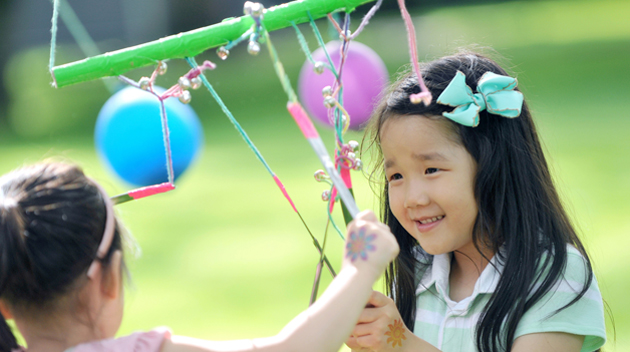ECE students learn new ways of engaging children in play-based learning
A glimpse into Early Childhood Education learning by instructor Monique Goerzen

“I hear and I forget. I see and I remember. I do and I understand.” Confucius
Students in Early Childhood Education are learning all about how children learn music through play and experience. In groups, students have created unique instruments using recycled material. The music centres are designed for an outdoor play area, as noise levels are one of the barriers to allowing children to freely explore instruments.
During ECE 124, students have been asked to look beyond the traditional circle time. How can early childhood centres implement the play-based philosophy with music? There is clear evidence that children learn through play. Through simple experimentation with instruments, children can learn about sound and how different instruments can have different and unique ways to be played. Children learn about the pitch of instruments. Children quickly learn about dynamics as they play instruments as loud as they can or as soft as they can. An outdoor music centre provides an opportunity for children to explore music at their own pace, without pressure.
Most importantly, hands-on learning centres in music can change children’s attitudes towards music and music appreciation. Music is fun, exciting, and easy. Anyone can bang a rhythm on pots and pans. Anything can become an instrument. Your body can be used to become an instrument, anytime or anywhere.
What is the role of the early childhood educator amidst all this play? Our primary role is to create the environment that will encourage learning and exploration. We set the stage for learning. Next, we can explore the music alongside the children. We become learners, working alongside the children. We ask questions to guide their thinking and experience. We supervise, to ensure the safety and observe to learn more about the child. We build relationships with the children that engage and encourage them in their development.
This is the power of play-based learning. Children who are passionately engaged with the environment and connected with others. Both the students and their children and friends had a wonderful time exploring sound and music amidst a beautiful setting on the new UFV Chilliwack campus at Canada Education Park.





